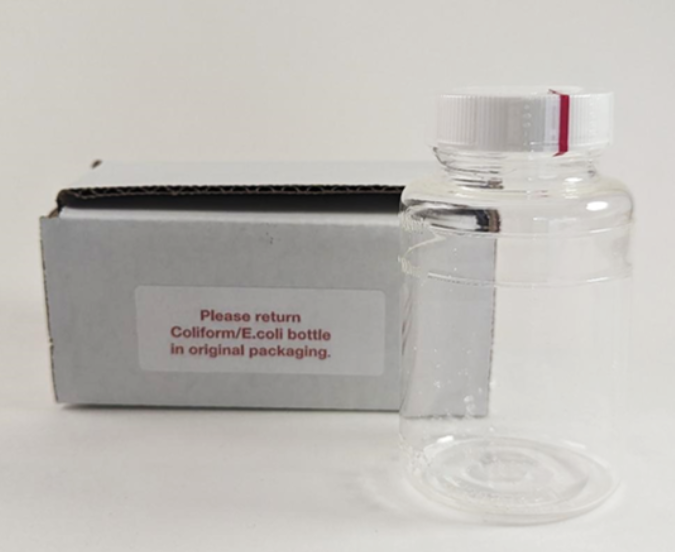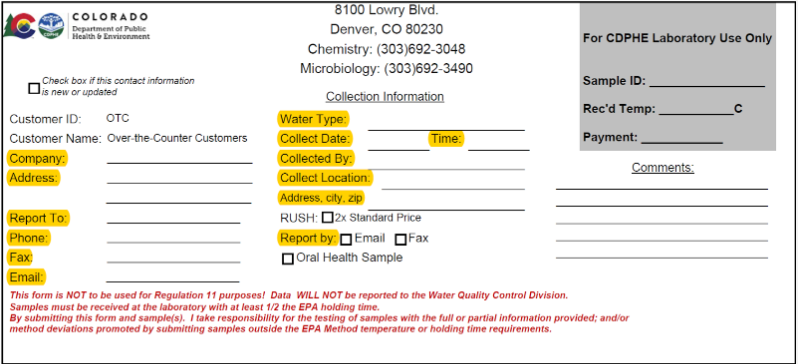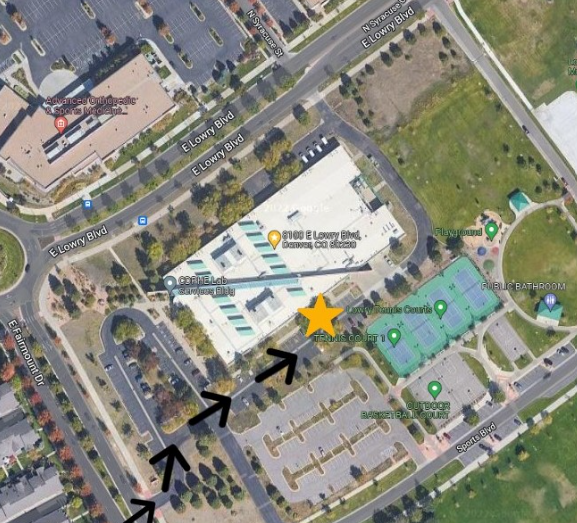Water testing services
The State Public Health Laboratory has temporarily suspended water chemistry testing.
Water recall frequently asked questions
We do not yet have a timeline for when the lab will re-open for testing. In the meantime, we encourage you to use an accredited lab for any water testing needs.
Chemistry water testing at the State Lab is temporarily suspended to address and remedy quality control issues. The State Lab is working closely with the Environmental Protection Agency to identify and resolve all issues. Bacterial testing is not impacted and remains available.
Refer to the list of other accredited laboratories that may be able to accept your samples. Before sending samples to another lab, please ensure you have checked its sample submission criteria, as it may be different from the State Lab.
The State Public Health Laboratory has temporarily suspended water chemistry testing. You can find more information about drinking water and private wells via our webpage. Refer to the list of other accredited laboratories that may be able to accept your samples. Before sending samples to another lab, please ensure you have checked its sample submission criteria, as it may be different from the State Lab.
The Colorado Department of Public Health and Environment is covering the cost of retesting recalled tests.
If the State Lab received your water sample after December 27, 2024, the lab will not process the sample. The lab will void your check, and we will reach out to you directly. You will need to send a water sample to an accredited laboratory for testing.
No, we cannot point you to a specific lab. Because we certify the labs on this list, it could be seen as a conflict of interest.
Only certified methods are on the list. Contact customer service representatives at commercial labs for clarification on specific testing offered.
The tool is easier to use on a computer than on a mobile device. It operates like a table to search based on selected details. You can use the drop-down boxes to narrow the list of laboratory names according to several factors including analyte/compound name, test type, method, and location.
The State Public Health Laboratory tests for microorganisms in water. Below you will find instructions on how to submit a water sample to the State Lab as well as a list of testing services we offer.
We currently offer the following bacterial water testing services:
While the State Public Health Laboratory has temporarily suspended water chemistry testing, we are still offering the following tests:
- Total coliforms & E. Coli, present/absent (P/A)
- Total coliforms & E. Coli, multiple-tube fermentation (MTF)
- Total coliforms & E. Coli, most probable number (MPN)
Please note for the following samples, the lab requires a minimum of 7 days notice prior to submitting samples for this testing.
- Heterotrophic plate count
- Legionella culture, water. Supply Order Form.
To view our Environmental Protection Agency (EPA) certification, see our certificate. For assistance with tests not provided at the Colorado State Public Health Laboratory, contact one of these accredited commercial labs. For additional assistance, please contact cdphe_labcoordinators@state.co.us.
Instructions for bacterial water testing
Follow the steps below to test a water sample with the State Lab:
- Order water collection bottles. The lab will ship bottles to you via FedEx at no cost.
- Collect a water sample.
- Label the water collection bottle and complete the chain of custody form.
- Package and transport the sample to the State Lab.
- Payment is due at drop-off. If you are mailing the sample, you must include the check with the shipment.
- Review results. Most sample results are available within 72 hours.
Order water testing bottles
The State Lab will not accept water samples collected in bottles that the State Lab did not provide because they may be contaminated. The lab will ship water testing supplies via FedEx at no cost. We cannot ship to P.O. boxes or to a drop-off location. There are two order forms: one for non-water providers that would like to test private drinking water samples, and one for companies that perform compliance water testing.
Private customer water testing bottle order form
This order form is for non-water providers, such as well owners, business owners, and real estate agents, who want to test their drinking water. Non-water providers do not follow a water testing compliance schedule or have a public water system identification number.
Water provider and wastewater company water testing bottle order form
This order form is for water providers and wastewater companies which are performing water compliance testing.
Collecting a water sample
Check that you have all the correct bottles and review all instructions before collecting water samples. Read carefully as some bottles have different collection instructions. If you are missing a bottle or a bottle broke during transit, email cdphe_laborders@state.co.us.
Before you sample
- Wear nitrile or latex gloves to minimize potential contamination.
- Sample from a faucet or spigot that is not leaking, does not swing, or has an aerator on it. Most kitchen faucets have both and you should avoid both. We recommend sampling from a spigot in a bathtub.
- Always sample from the cold water tap. Hot water is not considered an accurate sample for testing.
- Some bottles contain powder or acid preservatives that are required for testing. Do not overfill or rinse out any of the bottles.
Note: The State Lab must receive all water testing samples within 24 hours of collection or they will be rejected. Plan accordingly.
Make sure the bottle is sterilized and sealed. It contains a preservative that appears as a white powder in the bottom of the bottle. You will remove the sterile wrap completely from the bottle just before collecting a water sample. Do not use it if the seal has been broken. Several substances can be tested with this one water collection.
This sample has a 26-hour hold time. The lab must receive samples within 24 hours of collection or they will be rejected. We recommend transporting samples to the lab immediately after collection. The lab accepts samples Monday through Friday, 8 a.m. to 3 p.m., except on state holidays. If you cannot drop samples off at the lab, ship samples overnight using FedEx, UPS, or U.S. Postal Service. Do not ship samples the business day before a weekend or state holiday as the lab will not be open to receive it.

Note: Do not have any animals or running fans in the room while collecting a water sample.
- Turn on the cold water and let it run for 3-5 minutes.
- Turn off the water and clean the inside and outside of the spigot using rubbing alcohol. Do not use bleach as it will react with the reagent inside of the bacteria bottle.
- Once the alcohol has evaporated and the spigot looks dry, turn the cold water onto a slow, steady stream.
- Carefully remove the sterile wrap completely from the bottle cap.
- When removing the cap from the bottle, do not touch the inside of the cap or set it down on any surface. Hold the cap by its outside edges only. Do not rinse the bottle out before sampling.
- Fill the bottle between the 100 mL line (lower line on the bottle) and the 120 mL line (higher line on the bottle). The lab will reject samples that are filled under the 100 mL or over the 120 mL line.
- Immediately cap the bottle. Be sure to securely tighten the cap. Place it in a refrigerator or in a cooler with frozen cold packs for transport.
Labeling collection bottles
Include the following information on a label for each bottle:
- Name of the collector or client.
- Collection location. Give each bottle distinct descriptions so the State Lab can tell the samples apart. For example, bathroom sink faucet and bathroom tub faucet — these are both found in the same room, but collected from different locations.
- Collect date and time. Use the 24-hour time format or include a.m. and p.m. when you write the collection time.
If the label does not match the information listed on the chain of custody, the lab will not be able process your sample.
Completing the request for Analytical Services chain of custody form
Each water testing bottle order comes with an Analytical Services chain of custody form. If you already have an account with the State Lab for testing, do not use this form and email cdphe_labcoordinators@state.co.us to get a personalized form. Customers who follow a compliance testing schedule should have an account with the State Lab.
Complete one chain of custody form for each collection location. All fields in the top box of the form are required. The lab cannot test your samples without a completed form. If you make a mistake when completing the form, cross it out and write your initials and the date. You can also print and complete a new form.
The following fields in the form include:
- Company name, if applicable.
- Address. This is the billing address.
- Report to. List your name or the name of the person who should receive the report.
- Phone number.
- Fax number, if applicable.
- Email. By default, we will email the results. Be sure to spell the email correctly and legibly so it does not delay the return of your results.
- Water type. This may include well water, municipal water, lake, river, drinking water, etc.
- Collection date.
- Collection time. Use the 24-hour time format or include a.m. and p.m. when you write the collection time.
- Collected by. List the name of the person who collected the water sample.
- Collection location. List the room and faucet where you collected the water sample. For example, kitchen faucet, bathroom sink faucet, and bathroom tub faucet are three different collection locations.
- Address, city, and ZIP. If the collection location's street address is different from the billing address, list it.
- Relinquished by. If shipping the sample, sign and date the first “Relinquished by” at the bottom of the form. Lab staff will ask you to sign this at sample drop-off.
Expedited testing does not apply to bacterial testing. Results for bacterial testing are available within 72 hours.

Sample packaging
Package samples using the styrofoam cooler the bottles were received in to return water samples to the State Lab. Bacterial samples can be transported at room temperature.
- All samples must arrive at the lab with a chain of custody form and a valid form of payment.
If samples are shipped using a commercial carrier like FedEx, UPS, or U.S. Postal Service, follow the carrier-specific shipping liquids instructions. You can find this information on the carrier’s website. - Separate the containers from each other, and the walls of the box, to prevent damage. You can use bubble packaging or corrugated box dividers.
- Include an absorbent, like paper towels or cotton balls, to soak up any liquids that may spill. Add packing paper or bubble packaging to fill any empty space to cushion containers during transit.
- Seal and label your shipment. Place the label on the top of the package to increase the chances it will be shipped in the preferred orientation.
Sample transportation
Overnight shipping is required due to time restrictions for testing in accordance with EPA holding times. Ship immediately after collection via FedEx, UPS, or the U.S. Postal Service to:
CDPHE Lab - Sample Receiving
8100 E Lowry Blvd.
Denver, CO, 80230-6928
If you ship a cooler and want the lab to return it to you, include a prepaid self-addressed label. Be sure to clearly label the outside of your cooler with your name or facility name, address, and phone number.
Couriers will not pick up from residential addresses. Customers can drop off water samples at participating local public health agencies where the courier can pick up the water sample to transport to the lab. Call the local public health agency prior to dropping off the sample to make arrangements. If you are not in a jurisdiction that allows for courier service, you will need to ship or drop off samples.
Note: The lab must receive environmental water samples within 24 hours of collection or they will be rejected.
Boulder County Public Health
3450 Broadway Street, Boulder, CO 90304
303-441-1564
Delta County Health and Human Services
255 West 6th Street, Delta, CO 81416
970-874-2165
El Paso County Public Health
1675 West Garden of the Gods Rd, Suite 2044
Colorado Springs, CO 80907
719-578-3199
Fremont County Department of Public Health and Environment
201 North 6th Street, Canon City, CO 81212
719-276-7450
Larimer County Department of Public Health Department - Fort Collins Office
1525 Blue Spruce Drive, Fort Collins, CO 80524
970-498-6700
Las Animas County Health Department
412 Benedicta Avenue, Trinidad, CO 81082
719-846-2213
Mesa County Public Health
510 29 ½ Road, Grand Junction, CO 81504
970-248-6900
Pueblo Department of Public Health and Environment
101 West 9th Street, Pueblo, CO 81003
719-583-4300
Weld County Department of Public Health and Environment
1555 North 17th Avenue, Greeley, CO 80631
970-304-6410
Payment
Payment for water testing is due at the time of sample submission. Make checks payable to CDPHE. Include the check with your water sample shipment.
Results
The lab will provide results from bacterial water samples within 72 hours. The lab will send results as soon as tests are complete and data is approved through email or by mail using the U.S. Postal Service. Be sure to spell your email address correctly and legibly on the chain of custody form. If you have not received your test results within the expected sample testing time frame, email cdphe_labcoordinators@state.co.us.
Contact information
- Email cdphe_envmicro@state.co.us or call 303-692-3490 for information about bacteria collection.
- Email cdphe_laborders@state.co.us for questions about missing or broken bottles.
- Email cdphe_toxcall@state.co.us or call 303-692-2606 for health effects interpretation.
- Email cdphe_labcoordinators@state.co.us or call 303-692-3069 with all other questions.
